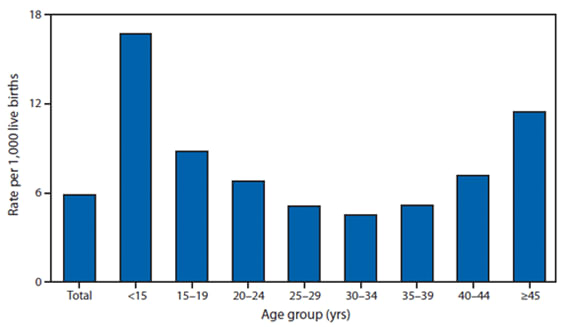Epistemic status: I'm sort of confident this would have a positive impact, I'm very puzzled about how to calculate it, I'm suspicious that I haven't found advocacy projects targeting special age groups... but I realized I might be a bit biased here, so I'd particularly appreciate criticisms of my perfunctory research (maybe pointing out sources leading to a different conclusion) and opinions in general. I didn’t find anything on this subject in the EA-sphere[1], but perhaps my research was flawed.
I was reading about Brazil’s Supreme Court case that could maybe someday lead to adopting old Roe v. Wade 12 weeks standard… even though news outlets say US Supreme Court might overturn Roe v. Wade. (seriously?)
I started wondering about the impact of abortion laws, from a consequentialist point of view[2]. I’m particularly concerned with adolescent pregnancy, as I believe that it entails relevant risks (which are often overlooked) and that it might be more tractable – because there is widespread agreement that adolescent pregnancy is something to be avoided and that teenagers are not fully responsible for what they do[3], so deserving special treatment.
Here are some of the sources that led me to pose this question:
- Childbearing in adolescents aged 12-15 years in low resource countries can be a neglected issue.
- This paper estimates, using data from 2014, that Thailand lost a total of 2599 years of DALYs “from the consequences of adolescent pregnancy and childbirth, and unsafe abortion resulted in the highest burden”.
- infant mortality is particularly high when it comes to adolescent mothers:

This graph refers only to US data from 2006 – where it’s not such a big issue. According to WHO, 90% of the 16.8 million adolescent pregnancies occurred in 2008 occurred in low- and middle-income countries (LMICs)
In my quick research, I didn’t find data on the social impact that unwanted or teenage pregnancy might have on the quality of life of the mother and the child in the long run. Some papers do cross longevity and mother’s age at the first birth, but I notice they usually control for social factors, because they’re looking for physiological causes that might impact health outcomes. But probably the worst impact of early pregnancy is actually mediated by social conditions, as part of a poverty trap. So I guess most of the impact would come from healthy teenagers who didn’t drop school, etc.
[1] Actually, I quickly searched for “abortion” in EA Forum, and mosty found posts [1, 2, 3, 4] cogitating that avoiding abortions might be a new cause X - with a help from normative uncertainty reasoning (NUR). Though I respect the arguments, I think this might provide a good example of how NUR may misfire. Perhaps, as an abstract moral issue, it could be interesting to think a bit more about this (specially as an exercise on NUR)... But if I were to think about preventing voluntary abortions as a possible cause area, I'd perhaps first consider what possible interventions and theories of change one could apply here, and:
- If some sort deontological theory is right, then I'd have compare the rights of the woman (and how your intervention affects these rights) with the rights of the possible individual / embryo – I'd have to deal with something like J. J. Thomson’s defense of abortion (but that’s no news for debates on abortion).
- If some sort of utilitarianism is true, and I disregard the person-affecting view, a pregnancy now is not much different from a pregnancy later, so I'd only care about population and welfare. Thus, being concerned about abortions and miscarriages seems to be (almost) as relevant as being concerned about frozen embryos.
- If some sort of utilitarianism is true, and I manage to make it compatible with a person-affecting view, I must still consider all the costs of my intervention, including counterfactual / opportunity costs for existing people - think about the difference in expected welfare of a couple who had an unplanned child in their 20s instead of a planned one in their 30s.
[2] Which doesn't mean I don't value the discussion on justice and women's rights. Quite the opposite.
There’s an interesting exercise (suggested by Seneca, I think) where you summon an imaginary “role-model” (I guess that’s where they got the idea for Harry Potter’s Patronus – or maybe it was Pokemon) and consider what they’d do in your place (or how you could act so as to become more like them). I often do the minimax version of it instead: imagine what a really despicable character would do, and try to act the very opposite. It turns out that, according to SMBC, an effective villain, focusing on how to do evil better, would consider suppressing women’s rights.
(Of course, the problem with this approach is that imaginary villains often diverge on what to do, and some would claim that protect reproductive rights to keep population low is as evil as killing.)
[3] I mean, there’s something wrong in societies where teenagers are not legally allowed to drive cars, but are forced to have kids.
